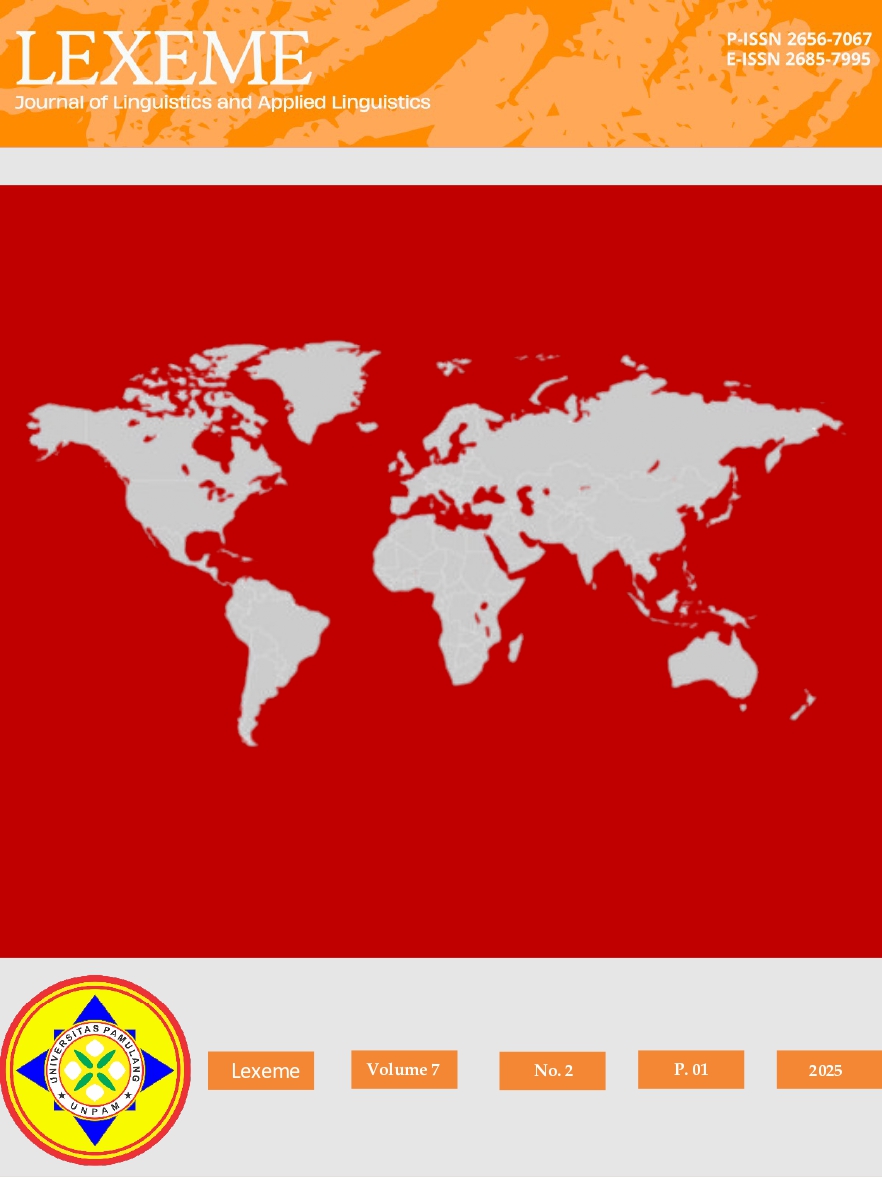Representation of Social Reality in the Lyrics of Fiersa Besari, Normatif, and Efek Rumah Kaca: A Sociological Literature Study
DOI:
https://doi.org/10.32493/ljlal.v7i1.47005Keywords:
Indonesian protest songs, literary sociology, literary criticism, literature and societyAbstract
This study examines the relationship between literature and society through a sociological lens, focusing on song lyrics as a medium for social critique. The songs Cerita Rakyat by Fiersa Besari, Jesika by Normatif, and Mosi Tidak Percaya by Efek Rumah Kaca serve as primary case studies to explore how socio-political and cultural contexts influence the narratives within these works. Using a qualitative descriptive approach, the research explores themes such as social inequality, governance, the impact of digital culture, and the pursuit of social justice. For example, Cerita Rakyat critiques the romanticization of poverty and the neglect of marginalized communities, Jesika highlights the commodification of identity in the digital age, and Mosi Tidak Percaya addresses political disappointments and systemic corruption. The analysis reveals how music acts as a mirror of social realities, amplifying pressing issues that are often ignored in political discourse. The results also show that music is not only a form of artistic expression, but also a powerful tool for building social awareness and inspiring action for social change. By integrating literary analysis with social relevance, this study highlights music's vital role in connecting individuals to contemporary issues and providing a platform for dialogue and introspection. Finally, music emerges as a potential for change, inviting listeners to engage and respond to the social challenges that affect their world
References
Beauchamp, C. (2006). Understanding reflection in teaching: A framework for analyzing the literature.
Damono, S. D., & Effendi, S. (1979). Sociology of literature: a concise introduction. Jakarta: Language Development Center.
Ellis, J. M. (2022). The theory of literary criticism: A logical analysis. Univ of California Press.
Griswold, W. (1993). Recent moves in the sociology of literature. Annual review of sociology, 19(1), 455-467.
Khumaedi, F., Lukmantoro, T., & Nugroho, A. (2013). Perlawanan terhadap Budaya Dominan dalam Lirik Lagu-lagu Efek Rumah Kaca (Analisis Semiotika). Interaksi Online, 2(2).
Lambert, V. A., & Lambert, C. E. (2012). Qualitative descriptive research: An acceptable design. Pacific Rim international journal of nursing research, 16(4), 255-256.
Li, J. (2022). Emotion expression in modern literary appreciation: an emotion-based analysis. Frontiers in Psychology, 13, 923482.
Shah, A. V., Hall, B. S., & Carr, E. R. (2016). Bono, Band Aid, and Before: Celebrity Humanitarianism, Music, and the Objects of its Action. In Soundscapes of wellbeing in popular music (pp. 269-288). Routledge.
Spector, M., & Kitsuse, J. I. (2017). Constructing social problems. Routledge.
Stockwell, P. (2014). Ethics and imagination in literary reading. In Discourse and creativity (pp. 35-51). Routledge.
Vitaloka, E. D., Salsabila, A. G., Fiermansyah, A. B., & Anzari, P. P. (2022). Analisis isi moralitas dalam Lagu Cerita Rakyat karya Fiersa Besari. Jurnal Integrasi dan Harmoni Inovatif Ilmu-Ilmu Sosial, 2(8), 808-815.
Yoga, S. N., & Isroani, F. (2023). Analisis sosiologi sastra pada lagu. Jurnal Bima: Pusat Publikasi Ilmu Pendidikan Bahasa dan Sastra, 1(2), 83–102.
Downloads
Published
How to Cite
Issue
Section
License
Copyright (c) 2025 Syifa Fauziyah, Shobilatul Fadhilah, Cecep Agus

This work is licensed under a Creative Commons Attribution-ShareAlike 4.0 International License.







